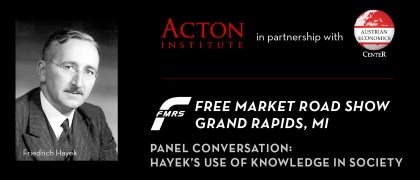This colloquium on Religion, Liberty, and American Culture explores the place of religion and religious belief in the history of America and considers its significance for liberty, American politics, culture, and the economy. The readings will proceed chronologically from the pre-Founding period to the early twenty-first century. The colloquium will look at how religion has shaped a changing American culture and, vice-versa, how aspects of the American experiment have affected the character and influence of religious belief in America. It will involve asking questions such as: What was the nature of religious freedom at America’s conception? How did it influence other aspects of American thinking? How did such ideas change over time? What is the significance of religion for America’s political and economic development?
- This colloquium will consist of 6 guided Socratic discussion sessions.
- The discussion sessions are text-based and so selected participants are required to prepare appropriately and participate fully in all sessions.
- Readings will be provided to all accepted participants.
- This colloquium is for Acton alumni who are currently enrolled or have recently completed graduate level work.
Covid-19 Conference Information
- The intent is to hold this program in-person with appropriate safety precautions according to the local and federal guidelines. All accepted attendees will be required to follow safe meeting guidelines provided by Acton Institute, which includes wearing a facemask to cover mouth and nose. Individuals not comfortable with meeting in-person, or not able to follow Acton Institute's safe meeting guidelines, should not apply to this program.
- Should local or federal regulations change, Acton Institute staff will communicate next steps in a timely fashion.
- Due to current travel restrictions, this program is open to individuals currently living in the USA.
Application Information
- Applications are accepted on a rolling basis until the colloquium has been filled.
- These programs tend to fill quickly, especially as space is limited to 15 attendees.
- Waiting lists are not maintained for these colloquia. When the program has been filled, the application will be closed.










